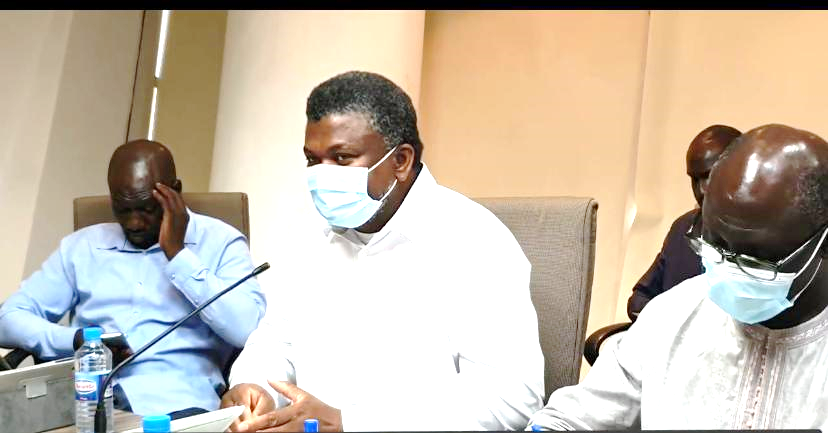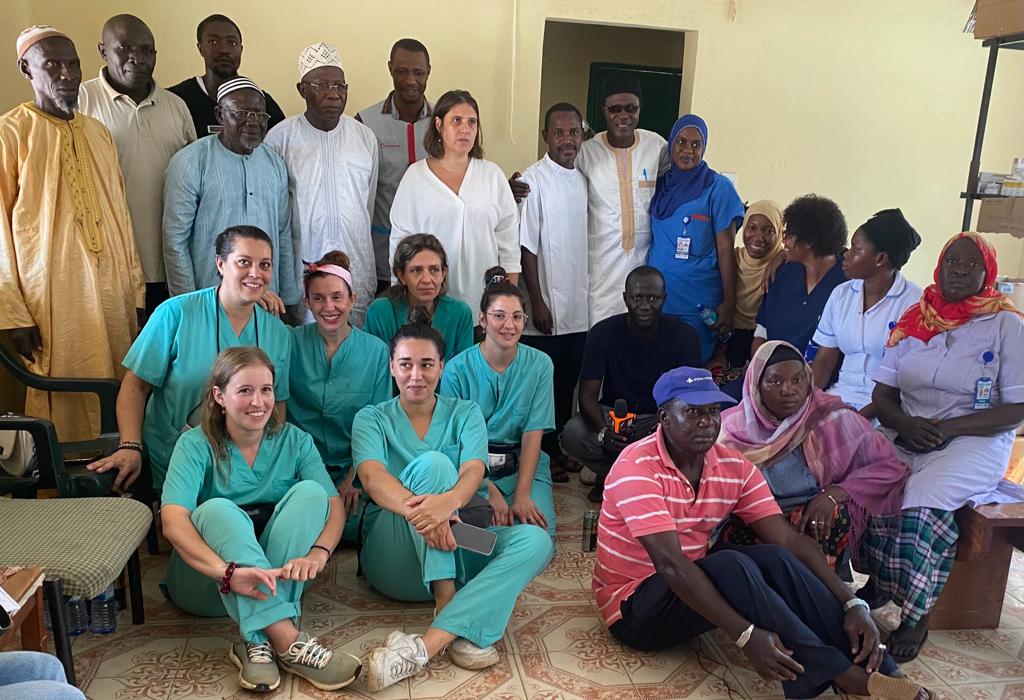By Binta Jaiteh
Honourable Ahmadou Lamin Samateh, the Minister of Health, and various head health officials from the Ministry of Health have appeared before the National Assembly select committee on Health regarding the mysterious death of over 70 innocent children due to Acute Kidney Injury (AKI).
On Friday during the committee meeting with the Ministry of Health team, Dr. Samateh informed the NA select members that this year, The Gambia has witnessed a remarkable amount of rain and it is said to be one of the highest in the last fifteen years.
He said this has been associated with floods in many places across the country and typically when rain is heavy with floods, health workers and the country at large are concerned because there is a health effect associated with heavy rain. The problem that people encounter, especially children who are the most vulnerable, he noted.
He added, therefore, diarrhea and vomiting are common during the rainy season, in addition, the floods have caused health problems, skin disease, diarrhea, and vomiting in some places. So, ‘during the flood, we have seen an increasing number of children who are presented at the hospital across the length and breadth of the country in all six out of the seven regions of the country,” he explained.
“As we know that the country is divided into seven health regions and all 7 regions referred cases except health region North Bank Farafenni where no case was reported. These patients were referred to various hospitals and eventually, some came to EFSTH with a history of fever, vomiting, and diarrhea in many of the cases. Initially, an assessment was done on diarrhea and vomiting diseases caused by bacteria and viruses,” he explained to the committee.
Further to that, he said on the 26 of July 2022, the Director of Health Services got an alert from EFSTH and informed about the observation of the trend of many of the children who had diarrhea and vomiting diseases. He said they also realized a quiet number had taken medications which ordinarily would have been normal because people take drugs when they are sick. He added that in the hospitals their competency level has increased they have a professor who deals with kidney problems of kids from Nigeria.
“These people are seeing these cases now and due to the knowledge they have in managing cases in other countries who consume medications and developed kidney injury” he revealed and that the “thought was that probably they had a bacterial infection but samples were taken like blood and urine samples in Gambia and Senegal.”
According to him the identification in some of the samples, a type of bacteria was found in them and that bacteria itself can cause vomiting and severe diarrhea, which can also cause kidney injury. He said the bacteria in question has strains that are known to produce a toxin called cigar toxin this is said to be responsible for a phenomenon called hemolytic syndrome and can cause kidney injury and kidney failure.
He went on in his explanation that in some of the samples another syndrome was detected that can also cause kidney injury. Looking at it there are several possibilities the doctors were active and the entire team did not relent. Every country has a baseline of acute injury disease, “but our own is not known to me because due to data and diagnostic challenges in the past and we not have expertise but the number they were seeing they taught is unusual for specifically AKI that raised an alarm in their minds.”
AKI is a sudden deterioration of the function of the kidney which has many causes. It may manifest in a decrease in the volume of urine produced or cessations of production of urination in the first place and when it happens the wet production of metabolism has to change in the body.
Therefore, having consequences and equally speaking the kidney have other functions that are not carried out when the kidney fails. Kidney injury causes are classified as things that happen before or outside the kidney which include severe dehydration which might be a result of serious vomiting and diarrhea, and blood loss.
However, he continued, “in the process of our collective responsibility, we had to bring in hemodialysis machines for children in the country. They also realized that many of the children had similar drugs and the thought was for the drugs to be investigated. Sample these drugs were sent to Senegal for analysis because we do not get the capacity to analyse these drugs to the extent of identifying toxins in them.
“Over the period we had a cumulative number of 82 and the last mortality figure that give a case of 85.4 this was a very different period for everyone medical teams did their best to save the lives of these individuals but not all of them died in the Gambia, 7 was taken to Senegal by their family members and eventually died at Senegal. We are working with partners the way it was announced we were not happy.”
He stated that the manufacture of contaminated medicine is a serious issue, especially knowing what they were exporting is also serious and the police start an investigation. The communication has started between the Gambia and the Embassy of India.




